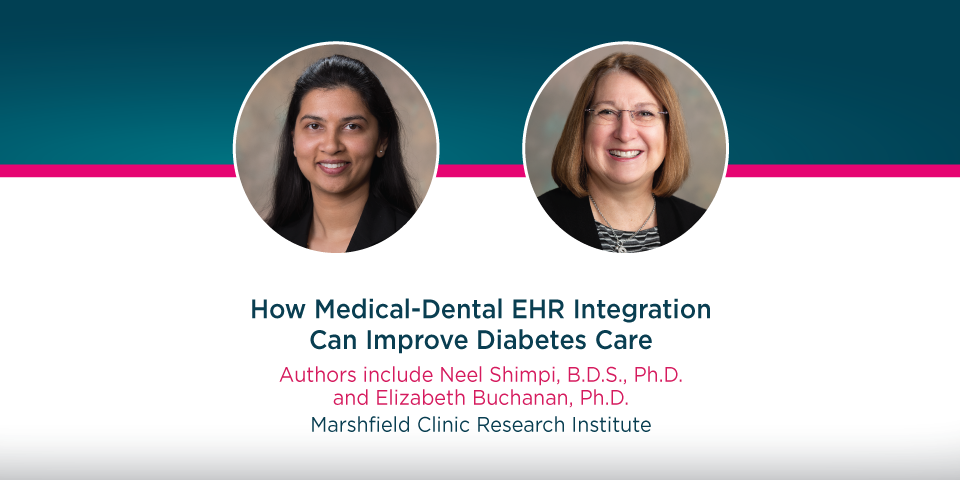The American Medical Association Journal of Ethics recently published a Marshfield Clinic Research Institute-authored article that detailed the realized improvements in diabetes care at Marshfield Clinic Health System after integrating its medical and dental electronic health records.
Neel Shimpi, B.D.S., Ph.D., associate research scientist at the Center for Oral and Systemic Health and Elizabeth Buchanan, Ph.D., director of the Office of Research Support Services and staff senior research scientist authored the article with previous Research Institute executive director Amit Acharya, B.D.S., Ph.D.
“The Family Health Center of Marshfield, Inc. has served low-income, underinsured and uninsured patients with dental care in partnership with the Health System since 2002," said Dr. Shimpi. “Ten dental care sites now serve more than 50,000 unique patients annually regardless of income or insurance status. This is a great step forward for health equity, especially for our rural population."
The Centers for Medicaid and Medicare Services data indicate that the Health System was the most successful participant in a 2011 physician group practice demonstration project, as it earned 57% of the $107.6 million in gross savings realized over a 5-year period. The outcomes of this demonstration project validated that integrating medical and dental care, supported by use of informatics, delivered high-quality care at reduced cost. Through the use of surveys and focus groups of medical and dental clinicians, educational tools for clinicians and patients were created.
One key tool developed was a clinical decision support oral health alert tool that alerted the primary care provider to conduct a visual oral examination of patients with diabetes. The tool resulted in additional referrals from the providers for dental care.
In addition, a similar tool was created for dentists using informatics techniques. The study team screened patients for risk of developing diabetes using their medical and dental records. This enabled dentists to refer patients at high risk of developing diabetes to physicians.
“The establishment of medical-dental interoperability, via EHR integration, supported development of informatics tools and integrated service delivery which facilitated patients' access to prevention and management interventions for chronic diseases such as diabetes," Dr. Shimpi said.

